Our history
LGC’s journey began in 1842, evolving from a UK government laboratory tasked with ensuring the quality and safety of goods to a global leader in life sciences. With a legacy spanning nearly two centuries, our rich history reflects our unwavering commitment to scientific excellence, innovation, and integrity.
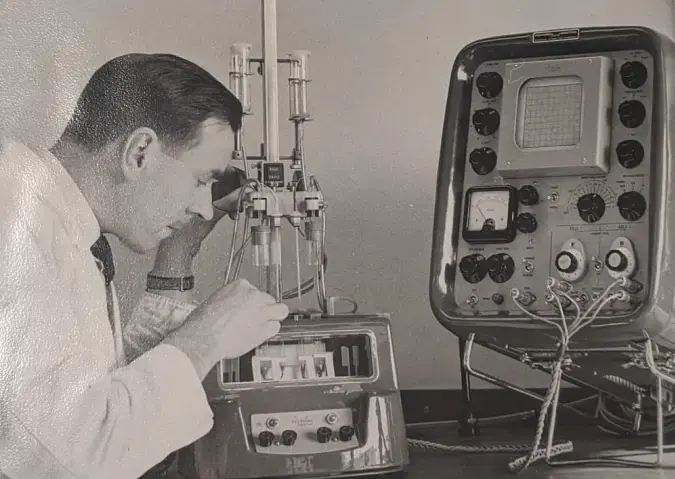
LGC’s origins trace back to 1842 with the establishment of the Excise Laboratory in London.
Tasked by the UK government with safeguarding public health, the laboratory played a pivotal role in addressing the widespread adulteration of everyday goods, including tobacco, alcohol, milk, soap, and even peppercorns. This work marked some of the earliest efforts to standardise product quality and ensure consumer safety.
By the early 20th century, the Laboratory of the Government Chemist (as it became known) had solidified its role as a critical resource for scientific testing and regulatory support. As the UK’s trusted authority in chemical measurements, it was responsible for developing national standards and methodologies that guided industries and protected public health. From testing for food contamination to ensuring accurate chemical measurements in trade and manufacturing, the Laboratory’s work established benchmarks that remain foundational today.
During the Second World War, the Laboratory expanded its scope to include defence-related chemical testing, providing vital support to the war effort. In the post-war era, its focus broadened further to include environmental safety and the development of quality assurance practices for emerging industries.
This period laid the foundation for LGC’s reputation as a centre of excellence in analytical science and measurement. The Laboratory’s work not only strengthened public trust in the safety and quality of goods but also cemented its position as a key advisor to governments and industries alike, setting the stage for its transition into the private sector.
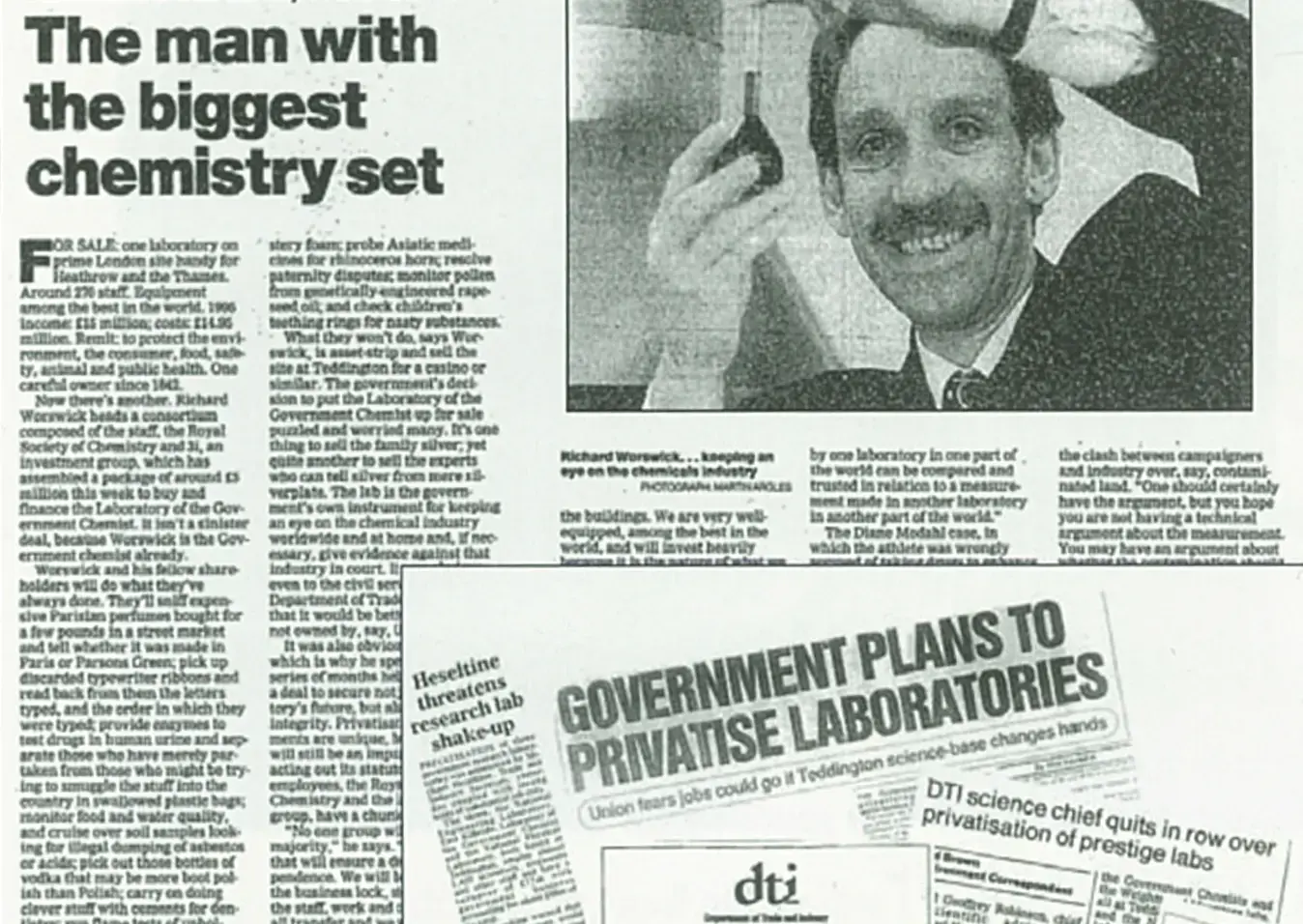
Privatisation and European expansion (1996–2010)
In 1996, LGC was privatised, marking the start of a transformative journey.
The move enabled diversification and growth, including the provision of outsourced scientific support services to other parts of UK Government, such as forensic science services and grant management.
In addition, this era saw significant European expansion in reference materials and proficiency testing, positioning LGC as a leader in the manufacturing and distribution of these critical quality assurance tools.
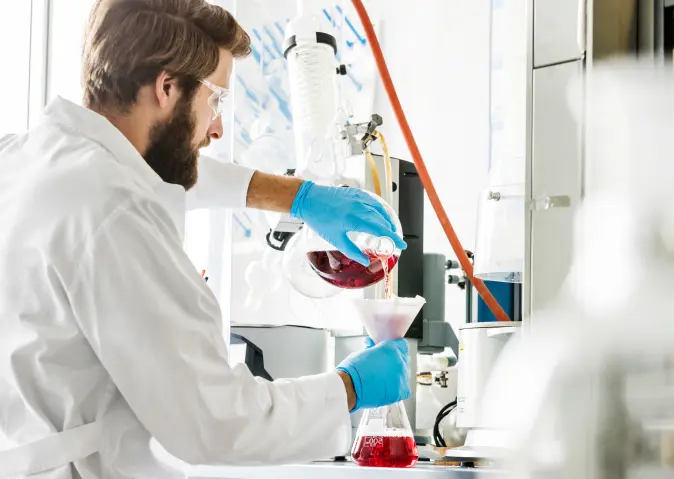
Global expansion and growth in Quality Assurance and Genomics (2010–2019)
LGC entered a period of rapid global expansion, driven by strategic acquisitions and partnerships. This included broadening our capabilities in proficiency testing, reference materials, and clinical diagnostics while significantly growing our genomics expertise.
This period also marked our shift toward supporting the human healthcare and food markets, driven by a combination of expansion into fast-growing areas such as personalised medicine, nucleic acid therapeutics and food safety, combined with the divestment of our forensic science services division in 2017.
Taken together, these changes allowed LGC to sharpen its focus on genomics and quality assurance tools, paving the way for the growth seen today.
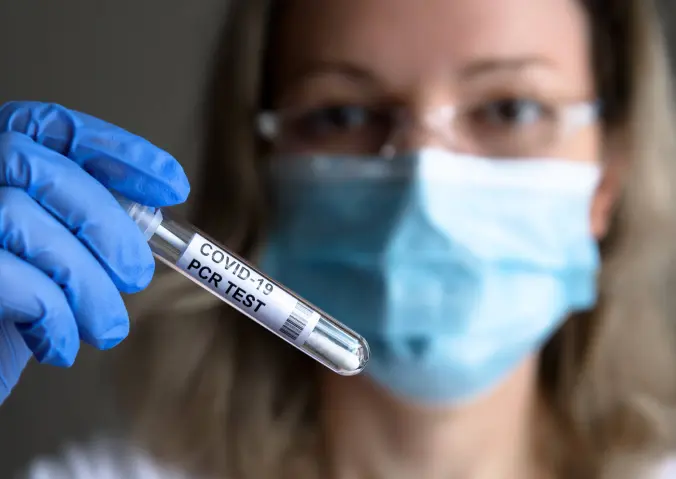
Responding to the COVID-19 pandemic and beyond (2020–present)
LGC played a pivotal role during the COVID-19 pandemic, participating in the global public health response through the supply of essential PCR test components, quality control solutions, reference materials, ultra-high throughput testing technology and proficiency testing.
Our collaborations with the UK Health Security Agency (UK-HSA), the US CDC, and a variety of critical industry stakeholders helped develop vaccines, treatments, and roll out diagnostic testing at unprecedented scale.These efforts underscored our dedication to tackling global health crises and highlighted our expertise in diagnostics, genomics, and quality assurance.
Looking ahead, LGC remains committed to advancing Science for a Safer World, continuing to support global health, food safety, and environmental sustainability.
Our timeline
1842
1842

The Excise Laboratory is founded in London
The Excise Laboratory was established to support the Government's efforts in ensuring the proper taxation of spirits and other excise goods. It played a crucial role in safeguarding public health by analysing and ensuring the purity of consumables. This foundational moment laid the groundwork for LGC’s future role in analytical chemistry, setting standards for accuracy, precision, and scientific integrity that continue to underpin its work today.
1875
1875

Peppercorns mark the start of a food safety legacy
Merchants were found to be mixing genuine peppercorns with ground substances like linseed cake and dust, a practice that posed significant risks to public health. In one of the earliest documented cases of food fraud detection, The Excise Laboratory began testing peppercorns for adulteration, establishing a long-standing involvement in food safety and quality assurance. In fact, even today, LGC proudly continues to test peppercorns, underscoring our ongoing commitment to ensuring the purity of food products.
Today, LGC, through our role as the Government Chemist, along with BRCGS, Safefood 360, and the Food Authenticity Network (FAN), continues to be a global leader in the fight against food fraud and the protection of food safety standards. Our work includes advanced testing methodologies to detect adulteration, contamination, and fraud in food products, ensuring consumer trust and compliance with regulations. LGC’s expertise spans across the analysis of everything from spices and oils to meat and honey, providing critical services to government bodies, public health agencies, and the food industry worldwide.
1909
1909
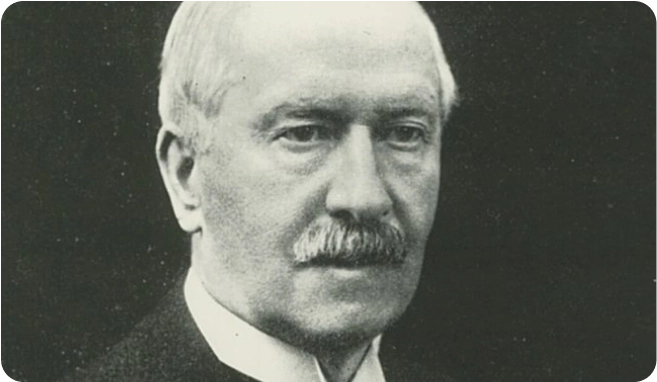
The UK’s first Government Chemist is appointed
Sir James Dobbie FRS FRSE FIC FCS (4 August 1852 – 19 June 1924) was appointed as the UK’s first Government Chemist. Under his leadership, The Excise Laboratory became The Laboratory of the Government Chemist, marking a pivotal moment in our history, and the start of our company name, which endures to this day as LGC.
Renowned for his contributions to chemistry, particularly in organic compounds and spectroscopy, Dobbie's leadership set the foundation for LGC's future role in ensuring the integrity of chemical analysis in the UK. He held the position until 1920, guiding LGC through an era of significant scientific development and establishing its legacy in analytical chemistry and public service.
1916
1916
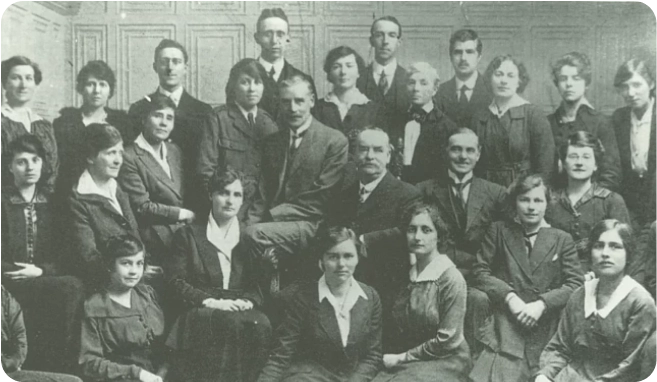
LGC's first female scientist is hired
Miss E.M. Chatt, was employed as LGC’s first female scientist amid a broader initiative to place women in the civil service during the war. Miss Chatt's recruitment paved the way for increased female representation in science at LGC, and by 1920, women made up over half of the junior analytical staff, a significant step toward gender diversity in the scientific community. The huge contribution of female colleagues to LGC’s development continues to this day: as of early 2025, the majority of our c.4,000 strong workforce are women.
1993
1993

Awarded the Nobel Prize in Chemistry
Kary Mullis was awarded the Nobel Prize in Chemistry for the development of PCR (Polymerase Chain Reaction), a revolutionary technique in biochemistry and molecular biology. His breakthrough was made possible by the earlier invention of the SAM 1 synthesiser by Ron Cook, founder of Biosearch Technologies which became part of LGC in 2015. Cook’s innovation enabled the efficient synthesis of oligonucleotides, a critical component for the PCR process, laying the foundation for one of the most transformative methods in modern biology. PCR has since become essential in fields ranging from medical diagnostics to genetic research, marking a significant epoch in science.
1996
1996

LGC is privatised
In 1996, LGC underwent a transformative privatisation, marking a new era for the company. At that time, LGC employed 270 people in the UK and had a turnover of £15 million. This change enabled LGC to diversify beyond government services, evolving into a global leader in life sciences tools and laying the foundation for future growth across sectors including clinical diagnostics, food safety, pharmaceuticals, and the next generation of personalised medicines
2001
2001
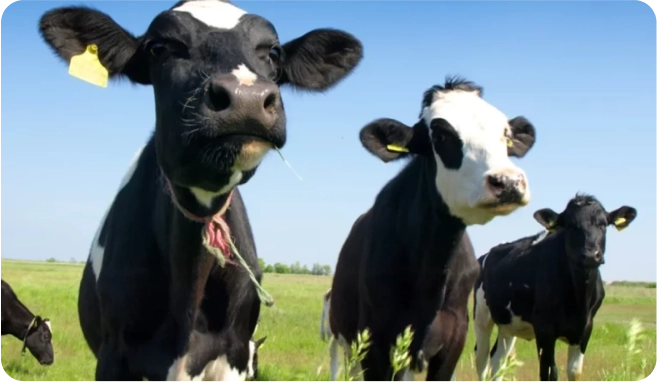
Controlling the foot-and-mouth outbreak
LGC played a pivotal role in the UK's response to the outbreak of foot-and-mouth disease, which had devastating effects on agriculture. LGC supported the Government by providing essential diagnostic testing and analytical services to help control the spread of the disease. The rapid and accurate identification of the virus enabled authorities to implement measures that limited further transmission, reducing the impact on livestock, farmers and the UK food chain.
LGC continues to support global agricultural and public health efforts, including the provision of ultra-high throughput genotyping solutions for the agricultural bioscience community to improve crop yields. We also apply advanced testing methodologies to detect and prevent diseases in crops and more broadly across animals and food products too. Our work ensures compliance with safety regulations, safeguarding both the food supply and the agricultural economy.
2003
2003
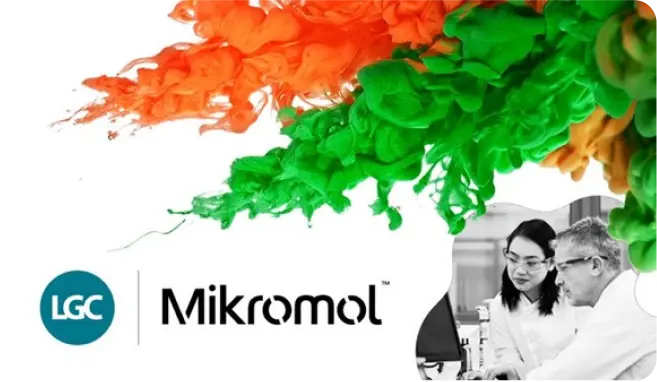
Protecting pharmaceutical standards through Mikromol
At a time when East German science lacked unified standards, two visionary scientists recognised the critical need for quality control in pharmaceutical products and set out to create reference materials that would ensure safer, more effective drugs were manufactured. The company they founded, Mikromol, joined the LGC family in the early 2000s.
From these humble beginnings, Mikromol has grown into a global scientific leader, with its reference materials now used worldwide to ensure the purity and safety of pharmaceuticals by detecting impurities in drugs ranging from antibiotics and antidepressants to steroids and vitamins.
Today, Mikromol offers one of the broadest portfolios of pharmaceutical reference standards, manufactured in ISO 17025/17034 accredited facilities. Customers benefit from detailed Certificates of Analysis, expert support, and top-tier reference materials that ensure the highest testing accuracy, supporting the production of safe, reliable medicines. At LGC’s Luckenwalde site, we continue this legacy, delivering rigorous quality and precision in every product.
2005-06
2005-06
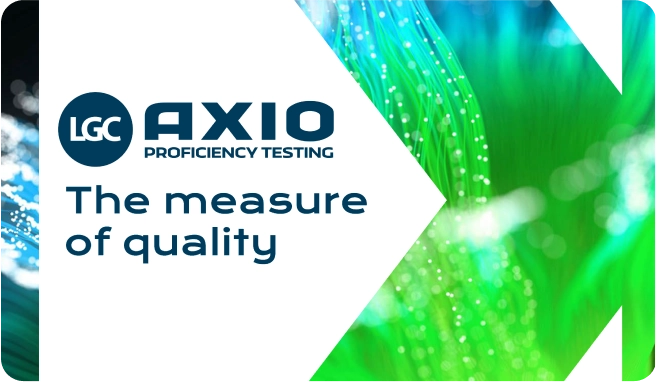
QM and Aquacheck strengthen LGC’s proficiency testing
LGC enhanced its proficiency testing portfolio with the acquisitions of QM and Aquacheck, strengthening our range of quality assurance solutions for analytical laboratories. Today, our AXIO proficiency testing portfolio supports the independent evaluation of laboratory performance worldwide, from testing chocolate for Salmonella and measuring the alcoholic content of low‐alcohol beer to assessing E. coli levels in sea water and the flammability of children’s toys.
2010
2010
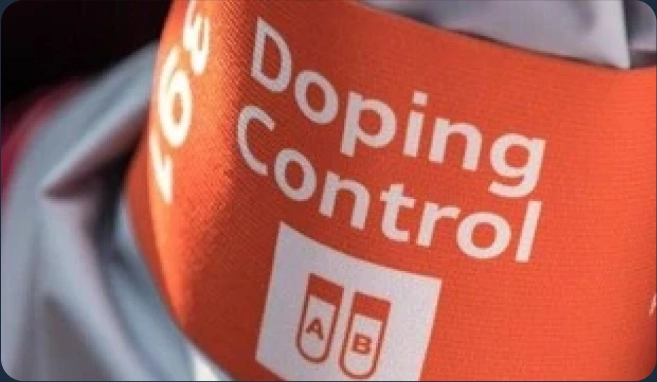
Building expertise in doping control
LGC acquired HFL Sports Science, broadening our expertise in doping control, sports science services and food supply chain assurance solutions. This move reinforced LGC’s position as a trusted provider of analytical testing and supply chain assurance solutions for human and animal sports, supporting fair competition worldwide.
With an estimated one in ten supplements contaminated with stimulants or steroids prohibited by WADA, our teams are crucial in supporting major sporting events. Our INFORMED SportTM programme ensures that sports supplements are screened for over 285 banned substances to ensure clean sport.
2011
2011
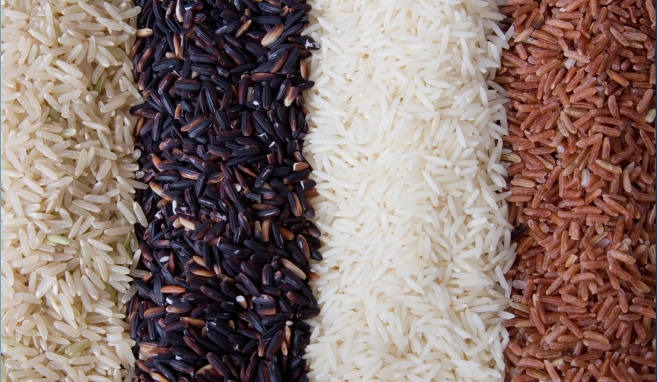
Genomic capabilities strengthened
As an innovative leader in genotyping technologies, when KBioscience joined the LGC family, it significantly strengthened our genomics capabilities and advanced our DNA analysis solutions, supporting breakthroughs in research, diagnostics, and agriculture.
For example, this acquisition facilitated a collaborative project with Bangor University and partners in India, Pakistan, and Nepal. Leveraging our sequencing technology, our teams have helped rice breeders identify disease resistant genes and uncover genetic diversity patterns, leading to the development of rice varieties with improved yield, drought tolerance, and resistance to BLAST and Blb diseases.
2011
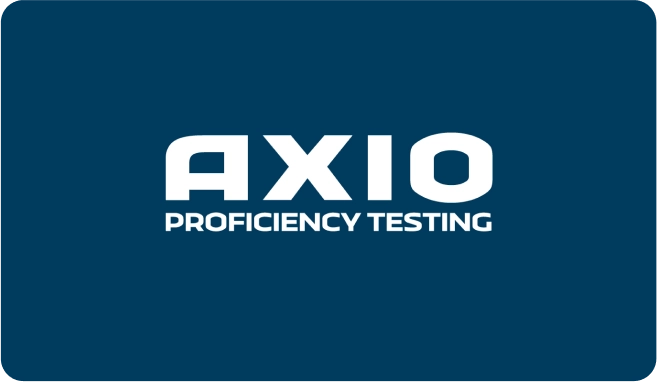
Proficiency testing expands
With the rising global demand for proficiency testing (PT) samples, LGC moved its Proficiency Testing division into a dedicated, state-of-the-art facility in Bury, UK in March 2011. Here, the team could more effectively deliver their advanced quality assurance services and robust independent evaluation of laboratory performance across food, beverage, environment, consumer safety, clinical, and forensic industries worldwide.
The team rebranded in 2019 to LGC AXIO Proficiency Testing, and the site was expanded further to accommodate the 2,700+ PT tests carried out each year with our 13,000+ participant laboratories. Today, the site is currently undergoing another expansion to accommodate more reference materials stock in 2025, making it a centre of quality assurance excellence for customers globally.
2012
2012

Increasing reference material portfolio and safeguarding the London Olympics
LGC acquired VHG Labs, a leading manufacturer of metallo-organic and inorganic reference materials for a variety of applications across the petrochemical, food, environmental and pharmaceutical sectors.
That same year, LGC supported the London 2012 Olympic and Paralympic Games by providing anti-doping testing, complementing our commitment to clean sport through our Informed Sport and Informed Choice programs.
2013
2013

Containing the horse meat scandal
LGC’s expertise in setting up and implementing quality assurance solutions proved vital during the horsemeat scandal of 2013, when our advanced testing methods detected undeclared horsemeat in beef products across Europe. Our contribution helped identify the origin and scope of contamination, ensuring transparency and accountability during a time of uncertainty for consumers.
Today, through our work with the Food Authenticity Network, we continue to lead the fight against food fraud globally. By leveraging cutting-edge testing methodologies in collaboration with our partners, we uphold rigorous food safety standards, protect the integrity of the food supply chain, and support consumer confidence.
2014
2014
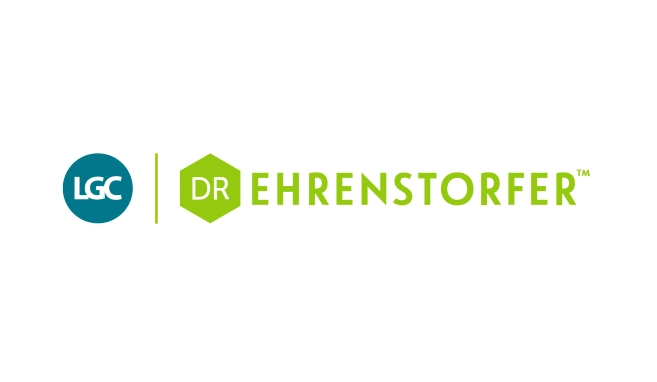
Dr Ehrenstorfer further expands LGCs reference materials expertise
Acquiring Dr. Ehrenstorfer, a leader in pesticide reference standards since 1975, broadened our reach in environmental, food, and cannabis testing. Over the decades Dr. Ehrenstorfer has built a reputation for producing high-quality materials that support critical safety testing across industries. Today, the portfolio comprises over 14,000 reference materials, including standards for pesticides, pharmaceuticals, and veterinary compounds, and is supported by centres of excellence in the USA and Germany, which offer custom synthesis and formulation capabilities to meet global regulatory requirements
In 2023, Dr. Ehrenstorfer's launched the largest ranges of reference materials for the testing of ‘forever chemicals’ (PFAS compounds), demonstrating expertise in detecting these persistent substances at very low concentrations.
2015
2015
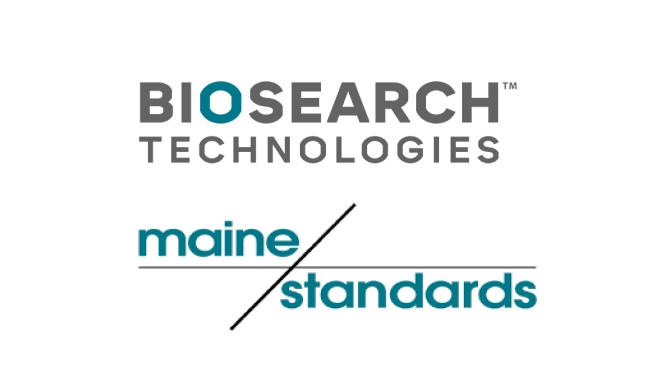
Biosearch Technologies and Maine Standards Company join the LGC family
LGC acquired Biosearch Technologies, a pioneering provider of oligosynthesis for molecular diagnostics and a wide range of other genomics applications. This positioned LGC at the cutting edge of DNA and RNA analysis, enabling us to deliver innovative solutions across diverse sectors, from enhancing agricultural productivity to driving breakthroughs in molecular diagnostics and precision medicine.
In the same year, LGC acquired Maine Standards Company, a leader in calibration verification and linearity testing materials for clinical laboratories. This strengthened our portfolio of quality assurance tools for clinical diagnostics, helping to ensure the precision and reliability of diagnostic tests.
2016
2016
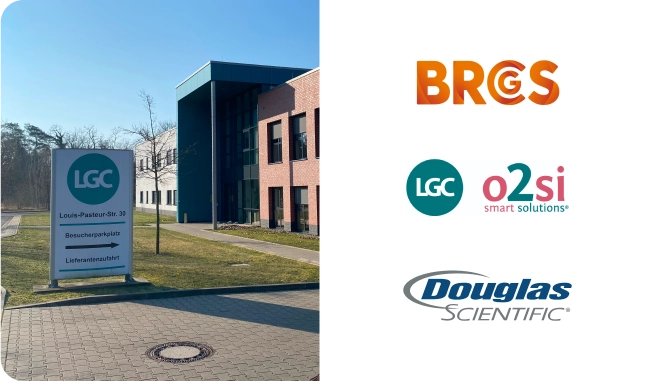
Multi-sectoral expansions across LGC
LGC significantly expanded its capabilities through four major initiatives:
Acquiring O2Si, a Charleston-based manufacturer of custom multi-component solution standards for food safety, environmental testing, and pharmaceuticals expanded our presence in the US and added additional custom capabilities to our extensive catalogue offering of organic reference standards.
The acquisition of Douglas Scientific, a market leading supplier of ultra-high throughput genotyping and laboratory automation capabilities, strengthened our portfolio of capabilities for the Agricultural Bioscience community.
Opening a state-of-the-art reference materials distribution hub in Luckenwalde, Germany, significantly improved our logistics and ensuring the timely delivery of critical materials worldwide.
Finally, we acquired BRCGS, a leader in setting rigorous standards for product safety, integrity, and quality across the food, packaging, and consumer goods industries. BRCGS has become an internationally recognised certification programme owner, helping companies meet stringent safety requirements and customer expectations worldwide. By integrating BRCGS’s supply chain assurance programmes, LGC extended its commitment to enhancing transparency and safety across global supply chains.
2017
2017
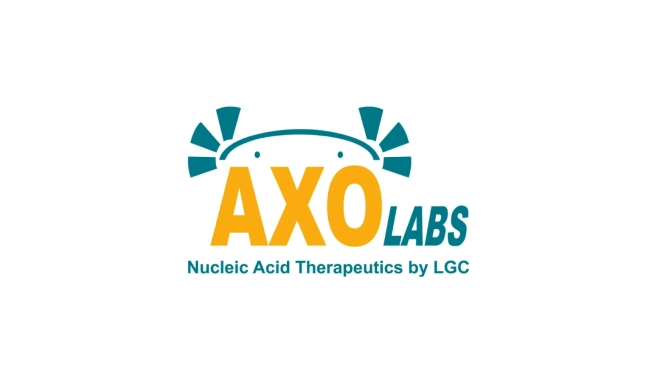
Axolabs brings nucleic acid therapy expertise to LGC
LGC expanded its capabilities in the fast-growing field of nucleic acid therapeutics with the acquisition of Axolabs, a leading contract research organisation specialising in oligonucleotide therapeutics.
Axolabs brought extensive expertise in preclinical development, bioanalytics, and custom synthesis of therapeutic nucleic acids, enhancing our support for clients in the pharmaceutical and biotechnology sectors.
With Axolabs, LGC further solidified its reputation as a trusted partner in advancing drug development, accelerating the journey from discovery to clinical research and helping to bring innovative therapies to market.
2018
2018
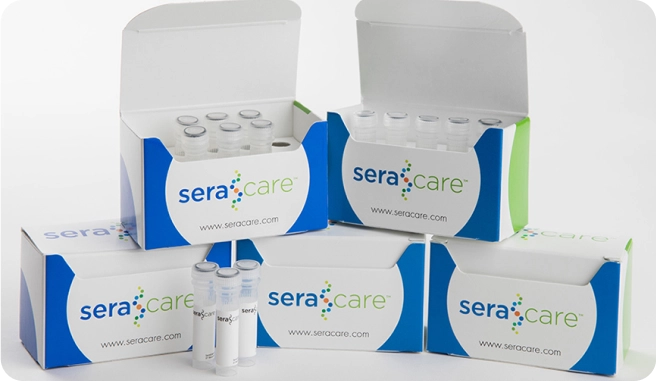
Advancing worldwide clinical testing standards through SeraCare
LGC acquired SeraCare, a company that was instrumental during the HIV epidemic of the 1980s, providing essential seroconversion panels that shaped the development of early HIV diagnostic tests.
SeraCare's panels played a critical role in evaluating and comparing HIV test kits for the World Health Organization (WHO) and other major infectious disease platforms. These platforms included high-throughput molecular and serological assays used in hospitals, public health labs, and research institutions, such as those for HIV viral load testing and hepatitis virus detection.
Today, SeraCare remains a leader in clinical genomics diagnostics, offering innovative products for oncology, reproductive health, and inherited diseases. With the introduction of Seraseq technology for NGS reference materials, SeraCare has advanced clinical testing standards worldwide, making genetic testing more accurate and manageable for laboratories globally.
2019
2019
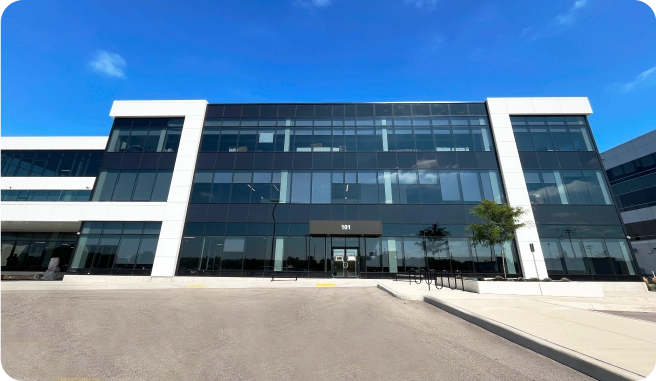
Expansion and excellence in organic synthetic chemistry
Toronto Research Chemicals (TRC) is a leading manufacturer of complex organic research chemicals to customers in the pharmaceutical industry, as well as forensic, environmental, and food laboratories. Following LGC’s acquisition, TRC has expanded its portfolio and gained access to LGC’s global logistics network, enhancing its ability to deliver unique research chemicals and analytical standards to a wider audience.
TRC has recently occupied a new c.200,000 square foot, state-of-the-art, purpose-built production facility in Toronto. This facility will act as a global centre of excellence for LGC in organic synthetic chemistry, facilitating the future expansion of the TRC portfolio as well as supporting other LGC sites across the world.
2020
2020
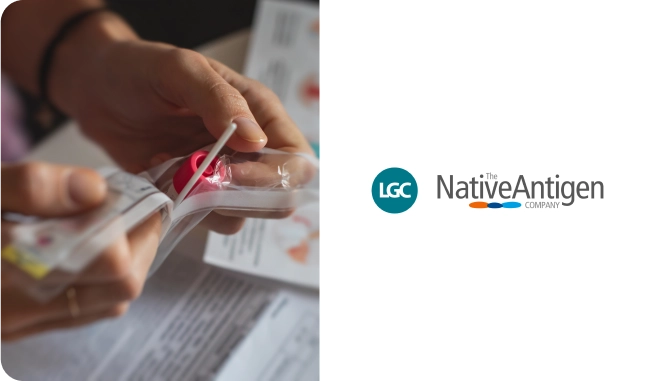
COVID19 response and broader infectious disease capabilities
LGC played a pivotal role during the COVID19 pandemic, enabling a rapid global response through the supply of essential PCR test components, quality control solutions, reference materials, and proficiency testing. In addition, we successfully repurposed our ultra-high throughput genotyping platforms to assist the UK Health Security Agency and others to deploy COVID-19 diagnostic testing at highly differentiated scale and cost.
Our work during the COVID-19 pandemic continued our tradition of participating in the response to public health crises, while also enabling continued advancement of our expertise across diagnostics, genomics, and quality assurance.
LGC expanded its infectious disease research capabilities with the acquisition of The Native Antigen Company (TNAC) in July 2020, bolstering our ability to develop essential reagents and antigens essential for studying infectious diseases.
2021
2021
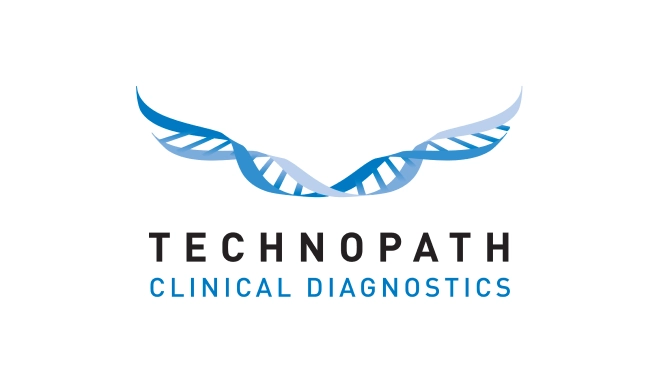
LGC expand quality assurance portfolio
Technopath Clinical Diagnostics, a leading manufacturer of multi-component controls for clinical chemistry, immunoassay and serology applications were acquired by LGC in 2021. This strengthened our ability to provide a complete menu of quality assurance tools to IVD manufacturers and clinical diagnostics laboratories across a broad array of testing modalities and application areas.
2022
2022
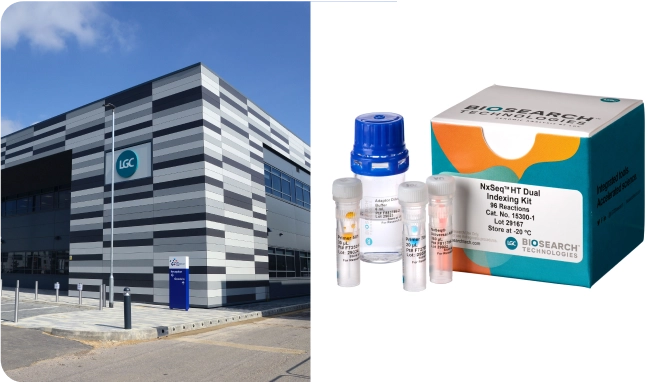
Rapid Genomics acquisition and LGC moves to Oxford
In April, LGC announced the acquisition of Rapid Genomics, a provider of mid to high-density Next-Generation Sequencing (NGS) kits and genotyping services, primarily focused on the agrigenomics market. This acquisition has enabled LGC to continue to deliver high-throughput, cost-effective DNA analysis in plant, livestock, and aquaculture genetics, complementing our existing genotyping portfolio and strengthening our NGS capabilities. This acquisition further supported our work to feed a growing world by developing disease-resistant crops and healthier animals, to cocoa, rice and blueberries.
In October, LGC moved into a state-of-the-art facility in Oxford, underscoring our commitment to scientific innovation and operational excellence. Operating from this facility, our teams are now leading the development and manufacture of antigens, antibodies, and assays to study and combat a broad range of infectious diseases, from global threats such as Ebola, Yellow Fever, and Monkeypox to lesser-known infections like Crimean-Congo Haemorrhagic Fever, a tick-borne infection with fatality rates of 10-40%.
This facility also stands out as our most sustainable building, Constructed to BREEAM Excellent standards, it meets stringent criteria covering energy and water use, health and wellbeing, building materials, and waste management, with zero carbon emissions on-site, renewable electricity powering all heating and power needs, and 100% energy-efficient LED lighting supplemented by motion sensor controls in all offices.
2023
2023
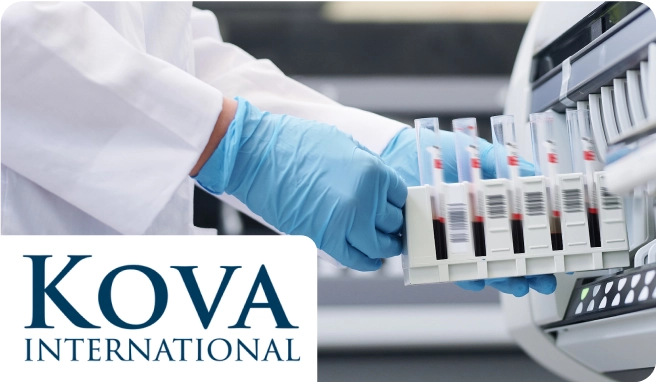
Kova International bolsters LGC’s diagnostic and supply chain provisions
We further enhanced our clinical diagnostics capabilities with the acquisition of both Kova International and Biochemical Diagnostics Inc., recognised leaders in urinalysis and toxicology quality control products, whose integration has strengthened our clinical diagnostics portfolio and helped laboratories deliver precise, consistent results.
2024
2024
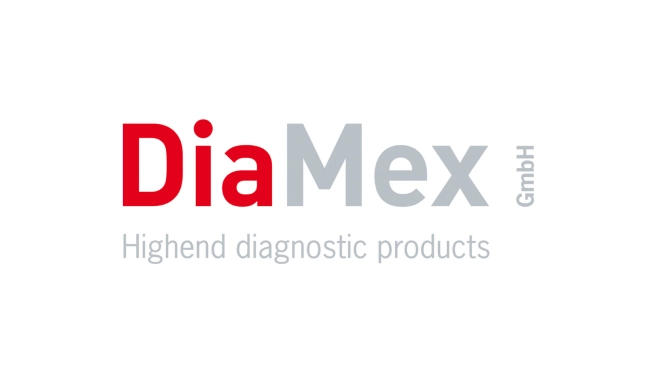
DiaMex joins the LGC family to strengthen in vitro diagnostics
Based in Heidelberg, Germany, DiaMex is a leading supplier of high-quality in vitro diagnostic (IVD) quality controls. DiaMex's products are designed to ensure ongoing performance of serology and molecular-based assays, strengthening the portfolio of innovative products and solutions we can offer to clinical laboratories and blood banks.
Careers
Start your career at LGC today, explore jobs from scientific to administrative to production. Our Standards manufacturing locations are in Germany, USA, and China.